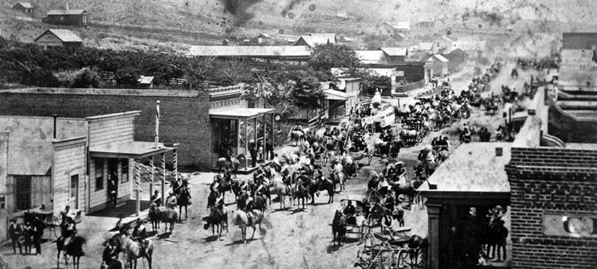(lubavitch.com) San Buenaventura, California is a picturesque middle class town draped in Spanish-revival stucco homes and wide, palm-lined avenues. More commonly known as Ventura, the city lies fifty miles west of Hollywood, has served as the set for such popular feature films as Erin Borokovich, Chinatown and The Aviator. However, these days, other films are on the mind of some of Ventura’s residents, Shrek 2, All Dogs Go to Heaven and The Smurfs, all written by a Ventura screenwriter David N. Weiss, whose own life story and rise to prominence has closely paralleled the Jewish story of his hometown.
A city better known for surfers than spiritual seekers, Ventura, surprisingly enough, boasts a vibrant and engaged Jewish community. In the center of this city stand the twin buildings of the local Chabad House, which offers weekly Shabbat and Holiday services, a thriving Hebrew school with forty students, a full-time preschool and holiday programs such as a grand Purim meal at renowned kosher vintners Baron Herzog.
Ventura’s Jewish presence dates back to the 1870s, although the first organized Jewish community, the VenturaCounty Jewish Council, was established in 1938. But with few if any opportunities for Jewish engagement available, the Jews of Ventura quickly assimilated and intermarried. Jewishly, the place was a “desert,” recalls Dr. Richard Reisman, a founding member of Chabad.
Weiss points to a range of influences that shaped his own years growing up in Ventura, a quintessentially American and Californian city, and Judaism was not a part of it. In fact, when a teenage Weiss started seeking out answers about G-d, religion and spirituality, he became increasingly alienated from his Jewish roots. By the time he had graduated high school, he felt he had found his answers in the Christian faith. “The upside to Christianity is that they want people to join the club. They make it an inviting club,” says Weiss, who went on to become a youth minister.
When friends encouraged Weiss to act on his dreams of working in show business, Weiss moved to Los Angeles, where he attended film school at Pepperdine University. There, he wrote what he calls “A kinda wacky born-again Christian film, a kind of cross between ‘Ghostbusters’ and ‘Oh God.’” Soon, Weiss’s work began to garner attention in Hollywood.
* * *
In 1987, Rabbi Yakov and Mrs. Sarah Latowicz brought Chabad to Ventura, renting a small office space in the center of town to run programs and events for the local Jewish community. The couple’s first Shabbat services drew just three people, but the Latowicz’s would not be deterred. Gradually, the couple’s warmth and generosity began to draw locals like Mr. David Blackstock, a retired attorney and a staunch supporter of Chabad. According to Blackstock, “Rabbi Latowicz is accepting and non-judgemental. There are absolutely no costs being associated with him.”
As word of the young couple spread, Chabad’s popularity grew. A farmer in Somis, a small town 20 miles west of Ventura, contacted the rabbi about arranging a weekly Torah class. In Camarillo, south of Ventura, the Latowiczs were instrumental in establishing a Jewish school. And in nearby Oxnard the couple set up monthly Shabbat services. Today many of these communities have their own full-time Chabad rabbis.
The biggest challenge facing the Latowiczs was Ventura itself, but over time, the Latowicz’ hard work began to pay off.
“In the past, as people became more affiliated, they would move to Los Angeles, New York, or Israel in order to provide a more Jewish atmosphere for their families,” relates Rabbi Latowicz. “The challenge for us today is to encourage these families to stay and invest in our own community – here in Ventura – so that tomorrow there will still be Judaism in their own hometown.”
* * *
Thousands of miles away, in Ireland, Weiss began working with legendary animator Don Bluth and a team of writers on the United Artists film, All Dogs Go to Heaven. There, for the first time in his life, Weiss encountered an Orthodox Jew. David Steinberg, an animator on the film, with whom Weiss shared many lively discussions. Eventually, inspired by these conversations, Weiss decided to attend an Orthodox prayer service. “I was overwhelmed by the beauty of the tradition that had been hidden from me,” says Weiss, who began exploring his roots.
Eventually, he began to take on a more observant lifestyle and strengthen his connection to Judaism. Soon after his return, David Weiss was given the opportunity to write the now classic, Rugrats Chanukah Special. Today, in between films, he speaks at venues across California and beyond to share with others the unusual journey of his life
Weiss was the guest speaker during a recent Shabbat dinner at the Ventura Chabad House. Sharing his story with the local community was especially important to him.
“This is my hometown, I want to show the people who knew me in my earlier life, both Jewish and not, where I have been and what I have become.”
Many found that Weiss’s personal saga mirrored their own.
“It was very inspiring to hear someone’s search for the same answers my wife and I were looking for – especially with the similarities in our journeys,” says Pinchus Shapiro.
On the whole, the Jewish community of Ventura has grown, both in number and in strength, in the last decades. As a result, Chabad has already outgrown several local spaces, and the Latowiczs are thinking up new ways to address the growing needs of an expanding and increasingly interested Jewish community.
“We have to keep reinventing ourselves to stay ahead of the curve,” says Rabbi Latowicz.

Be the first to write a comment.